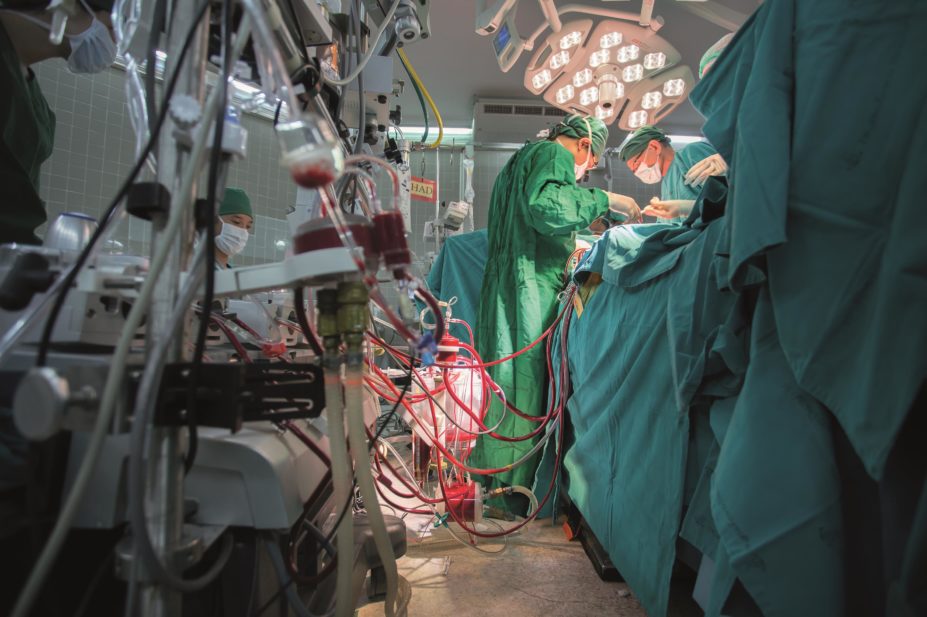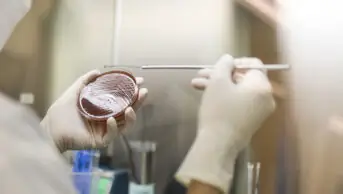
surassawadee / Shutterstock.com
Around 120,000 additional infections and 6,300 deaths in the United States each year could occur as a result of a 30% reduction in the efficacy of prophylactic use of antibiotics, a study finds.
The study, published in The Lancet Infectious Diseases
[1]
on 16 October 2015, shows that nearly half of post-surgical infections and more than a quarter of infections following chemotherapy are caused by organisms that are already resistant to standard prophylactic antibiotics in the United States.
“[The researchers] add to our scare about antimicrobial resistance,” says Murat Akova, president of the European Society of Clinical Microbiology and Infectious Diseases (ESCMID), noting that the results are important because of the reliance of many surgeons on antibiotic prophylaxis to prevent postoperative infections.
“Such resistance rates for antibiotics have already been surpassed in many countries around the world, thus a worse scenario should be expected.”
A team of scientists, led by Ramanan Laxminarayan, director of the Center for Disease Dynamics, Economics & Policy in Washington, reviewed all meta-analyses of randomised controlled trials conducted between 1968 and 2011. They assessed the efficacy of prophylactic antibiotics in preventing infections and infection-related deaths after ten of the most common surgical procedures and blood cancer chemotherapy in the United States.
The researchers calculated the added number of infection and infection-related deaths under different scenarios of reduced effectiveness of prophylactic antibiotics and used National Health Safety Network data and existing studies to estimate the proportion of bacterial infections that are resistant to currently used antibiotics.
The study found that 39% of surgical site infections after caesareans and 50-90% of infections that followed transrectal prostate biopsies are caused by organisms resistant to recommended prophylactic antibiotics. An additional 27% of infections after blood cancer chemotherapy were also resistant to standard antibiotics.
Additional modelling estimated that a 10% drop in efficacy of antibiotics could result in 40,000 additional infections each year, with a 70% drop in efficacy causing as many as 280,000 new infections. Infection-related deaths, meanwhile, could rise by between 2,100 and 150,000.
“A lot of common surgical procedures and cancer chemotherapy will be virtually impossible if antibiotic resistance is not tackled urgently,” says Laxminarayan. “Not only is there an immediate need for up-to-date information to establish how antibiotic prophylaxis recommendations should be modified in the face of increasing resistance, but we also need new strategies for the prevention and control of antibiotic resistance at national and international levels.”
In May 2015, delegates to the World Health Assembly, the decision-making body of the World Health Organization (WHO), set out a plan for tackling antimicrobial resistance that included strengthening surveillance and research, the reduction of infections, optimisation of the use of antimicrobial medicines, and sustainable investment in countering antimicrobial resistance.
Akova from ESCMID notes that one solution to the prevention of post-operative infections — using a broader spectrum of antibiotics — could in fact worsen the problem by “increasing selection pressure for more resistant bacteria”.
“Currently, the only solutions that we have in our hands is to apply effective antimicrobial stewardship programmes and find ways to decrease the (unnecessary) use of antimicrobials in clinical practice,” he adds.
References
[1] Teillan A, Gandra S, Barter D et al. Potential burden of antibiotic resistance on surgery and cancer chemotherapy antibiotic prophylaxis in the USA: a literature review and modelling study. The Lancet Infectious Diseases 2015. doi:10.1016/S1473-3099(15)00270-4


